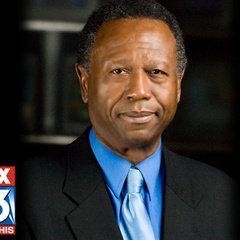The gentle breezes of the tropics stream through the open doors of our casa here in Belize. We leave these doors open from sunrise to sunset.

It’s a far cry from our life in Memphis — bars on the windows, a security system, and two dogs who went ballistic every time the MPD blue lights flashed in front of our house for traffic stops made at the busy intersection of Jackson and McLean. That’s because there is an inherent sense of tranquility here and not the constant fear and worry generated in an urban setting.
During our few weeks here, I’ve had a chance to reflect on how much the fear factor impacted our lives. I’m not just talking about our personal safety. It’s how local government, business interests, police, and prosecutors continue to exploit various forms of fear to deflect from substantive issues that could improve the quality of life for all.
Memphis government dictates that city finances are in dire straits. They tell us our tax dollars are still not enough to deal with a formerly neglected pension debt. But rather than demand that audit, taxpayers are only told that city finances could be taken over by the state if pension obligations are not met. Is it better to be informed or stay afraid of shadowy consequences? Aren’t taxpayers not owed that courtesy?
For years, the PILOT program run by the EDGE board, which grants millions of dollars in tax-free property initiatives, has had its hand firmly on the panic button. Since its creation, it has espoused that we must give out-of-town companies tax breaks or they will never move here. Yet women- and minority-owned businesses struggle to keep the wolves from the door on a daily basis. Granted, small businesses may not generate the potential for hiring hundreds such as IKEA, Electrolux, and Mitsubishi promised in pushing for tax breaks. But shouldn’t keeping local businesses whose home-grown allegiance to Memphis comes through only their own determination to succeed also become an EDGE board top priority?
The fear factor is never more prevalent than the constant threat of crime in the Bluff City. When people are gunned down in the streets, there is very little comfort when you’re told by MPD that violent crime statistics are down from the previous year. It is of little comfort when the Memphis Shelby Crime Commission uses stats from 2006 as the basis for a reduction in crime over nearly a decade. How do you explain that to the families of the murder victims?
The media too fan the flames of anguish and fear. Get ready for a barrage of crime-related stories during the November ratings, referred to as the “sweeps.” Titles such as “Do you know who really lives down the street from you?” and “Are your children safe at their day care?” will headline every local news broadcast. Some of these stories will contain useful information; most will rely on the shock value generated by the title, meant only to hook viewers.
As I mentioned before, it’s the public’s fears that serve as the driving force behind decisions that too often are based on emotions rather than logic and reasoning.
This year’s elections offer a crucial opportunity for voters to look for candidates willing to set sail on new courses of action. This is a critical time, one that will shape the city’s direction for the near future. A 20 percent voter turnout will only ensure more of the same directionless leadership.
Last week, I posted on Facebook my impressions of what I’ve heard and read about the race for Memphis mayor. My suggestion that the candidates should pledge to improve the lives of all Memphians was met with derision and complaints that “it can’t be done in four years!” Those reactions completely missed my point. With the myriad of problems confronting Memphis, expansive efforts to change a culture from bottom to top over a few years is unrealistic. But demanding accountability from our elected officials should be set as a standard for a mayor or city council person.
The stakes for the future of Memphis have become too high to invest our public trust in individuals with their own personal agendas. I sincerely hope that you will have the opportunity to inspire and breathe the winds of change and do so without fear of what lies ahead.







